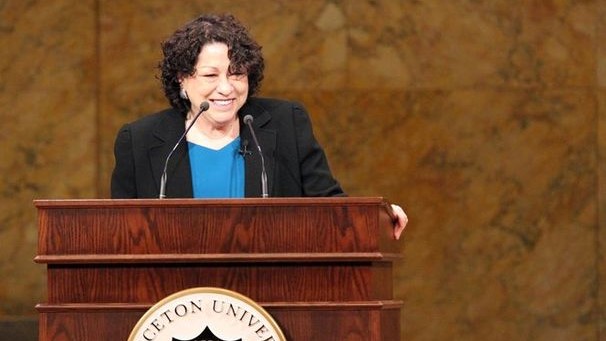Imposter syndrome is the persistent inability to believe that’s one success is merited and based on one’s own efforts and skills. It may be hard to believe that Sonia Sotomayor, the first Latinx appointed to the U.S. Supreme Court, battles with imposter syndrome but she doesn’t shy away from it. “I am always looking over my shoulder, wondering if I measure up,” Sonia told NPR.
She still finds herself struggling to feel like she fits in sometimes. Once a student in awe and trying to adjust at Princeton, an Ivy League university, she now has a scholarship in her honor at the school.
When Sonia first stepped foot on campus, she said she felt like she landed in an alien country. She was raised in the Bronx housing projects by Puerto Rican parents, and she immediately realized how different she was from her privileged peers at Princeton.
Sonia had her fair share of struggles, but they all shaped her into the iconic figure she is today. She was diagnosed with juvenile diabetes at age 8. Her father was a factory worker with a third grade education who didn’t speak English and died when Sonia was 9. Her mother was a nurse who worked six days a week to send Sonia and her brother to Catholic school.
But the Supreme Court Justice didn’t let her struggles get in the way. Instead, she used her unique challenges to fuel her thirst for learning, success, comradery and connection. It began when she became interested in law and dreamed of becoming a police officer after reading the Nancy Drew mystery series. After a doctor suggested her diabetes may impede her from such a physical job, and watching an episode of hit TV show “Perry Mason,” she decided to become a judge.
Her tenacity continued throughout her life and at Princeton culminated into her becoming a civically-involved student. Sonia rose to become leader of the Latino Student Organization and served on the governing board of the Center for Equality and Understanding. She even organized Latinxs to provide volunteer Spanish translation to patients at Trenton Psychiatric Hospital. Sonia graduated summa cum laude from Princeton and later, Yale Law School. Sonia transformed from the shy freshman who was intimidated to ask her professors questions to a student role model at Princeton.
Sonia’s spirit of resiliency and service inspired a group of Princeton alumni to start a scholarship fund in her honor. The Sonia Sotomayor 1976 Scholarship goes to first-generation students who show a commitment to service. The scholarship is fitting in that it’s awarded to an outstanding student like herself who may have come from an immigrant or Latinx background and become the first in their family to build a career and strong legacy of service and excellence.
“Service to me meant what my life has been. It’s caring, it’s giving, and that’s where the phrase ‘service in the name of humanity’ came from,” Sonia said.
“If we start there, everything else good will follow.”




